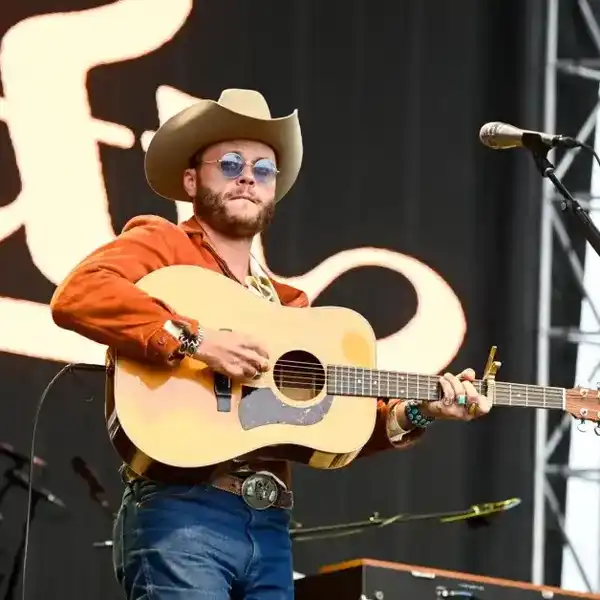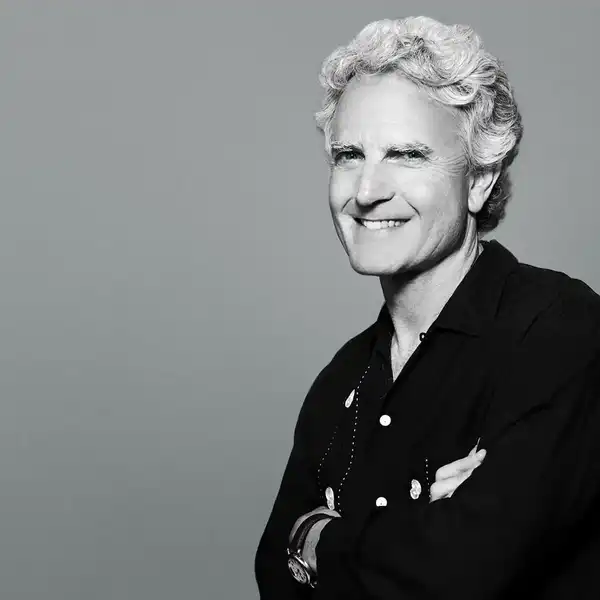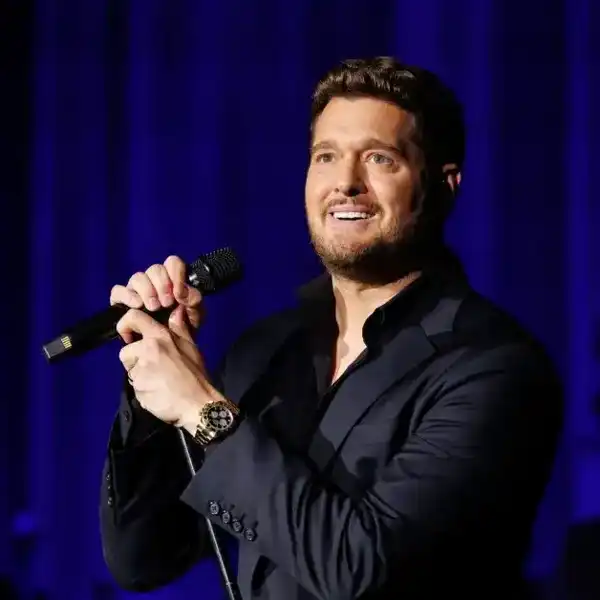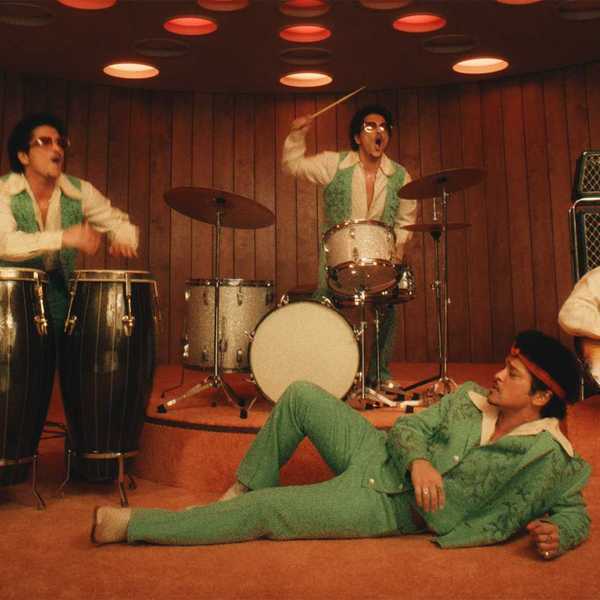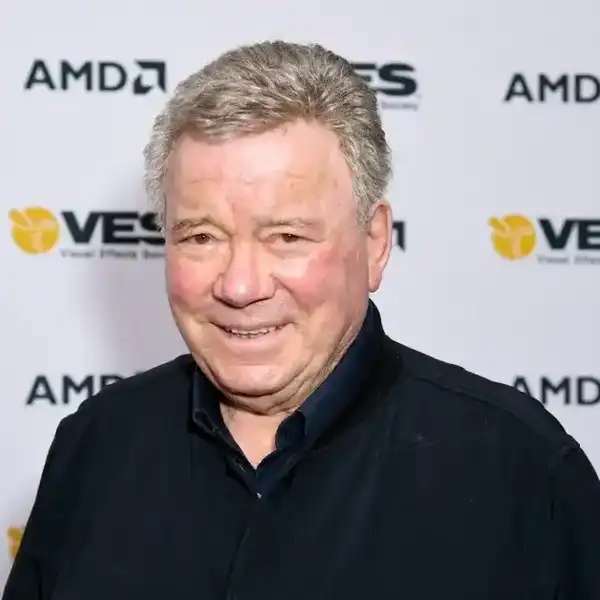A Conversation With .. Gino Vannelli
The Montreal superstar both chatted and played at Newstalk 1010 in Toronto recently. He discussed his songwriting masterclasses, his musical family, and the woman who inspired "Black Cars."

By Bill King
Each Saturday Ted Woloshyn and I have had the privilege at Newstalk 1010 to interview, greet and meet the finest musician/artists in this country. Each week, it’s a most revealing segment depending on the priorities of the artist. There are weeks I get out of the way knowing Ted hasn’t met or spent time with those I’ve already interviewed for FYI Music News.ca and let him roll. With Gino Vannelli, it was mandatory we both bounce a few things individually off him we had in mind.
Vannelli and brother Ross arrived at Bell Media headquarters in full professional stance -- “Can we do a sound check, how’s the reverb, can we plug in directly, Gino’s going to sing?” It’s talk radio, there’s only a brief bit of air between guests, and we’re not equipped with “state of the art” performance gear. There’s a direct input for my Roland digital piano and knowing Vannelli’s guitar is fully loaded internally with effects, I knew we could accommodate – but nothing as luxurious as reverb.
The one thing I could sense in the ‘’hall hang – lots of humor and good laughs were about to take place. Ted loves to laugh and follow-up. Gino did not disappoint. He dealt with the technical stuff and sang and sang and sang and spoke openly. Here’s that chat absent music. Enjoy!
Ted Woloshyn: To go along with the other 20 million records he has sold worldwide - multiple Juno Award winner Gino Vannelli, of course, and certainly well-known to these ears. Before I got into talk radio I was into music radio, and I must have played “Black Cars” and “I Just Want to Stop” about eight thousand five hundred times. A pleasure to meet you. How are you?
Gino Vannelli: Good to be here.
You took a bit of a break from touring there for a while.
In the '80s I took a break, and I started touring in the early '90s, and now it's been sort of non-stop for 10 years, and we're probably going to take a break and record another record in 2020.
Was the reason for taking the break because you wanted to put some new stuff together for an album?
I had been touring since I was 12 or 13 years old and I needed to re-educate myself. I went through a very, very early mid-life crisis at 28 years old and went back to school and took a whole bunch of things. I took the humanities again and theology and literature and educated myself. In essence; I finished my education.
Where did you go?
I went to Cal Lutheran in L.A. and that got a little old you know, being with 19-year-olds in the same class. I didn't relate to it much so being twenty-nine years old I decided to get private professors. I not only got interested in theology - I just wanted to study it completely - all the theologies of the world and I did that for six years.
Your original education was at McGill, right?
My original education was high school at Pious 10th in Montreal then a year at McGill for music. It was just kind of a little bit slow for what I wanted to do at the time, and there was no popular songwriting class.
I give a popular songwriting class now - masterclasses - and when you understand what the trenches are really all about - record companies, radio stations - you know the three or four-minute form - the graph of how to write and compose a song, this is the class I like to give. We have a lot of aspiring young students that come every year to Portland for the classes. I have also given a lot of them in Europe and the conservatories in Europe. I learned from what I didn't have.
You came from a musical family - your dad was a singer and sang with some of the great horn players like Maynard Ferguson for example.
I'm glad you mentioned that. My dad had an audition for The Ed Sullivan Show and was supposed to go on and for some reason that he never made known - he quit.
When you decided to take on music as a career, how helpful was he to you? Some will say this is an unsettling crazy career and others will say, 'hey, I’m right behind you'.
My dad was pretty smart. I think he understood that I had a real affinity and real passion for it and that I was a drummer and I learned my theory and I took piano lessons, took guitar lessons. He was a good vocalist and gave me a lot of tips vocally. But even in later years, I went to see a vocal coach in my '40s. I was always pretty much into being a student of whatever I was aspiring to do.
Everybody talks here in Toronto about the connection between Drake and the Toronto Raptors. He's like their official brand ambassador and you had a year there where you were tied in with the Boston Celtics.
I was not tied in with the Boston Celtics; they used my image.
Explain that again.
There is no clear explanation. It is pure serendipity. Someone who I think wore a T-shirt of mine from the 1976 Gist of the Gemini Tour wore my T-shirt as an inspiration and mascot – who knows? Between shots and they called it “Gino Time” and somehow some way that's how it happened. I just got wind of it, and I looked at it and sort of smiled at it.
Bill King: It's also about the brothers. You’ve got some incredibly talented brothers and to be growing up together; there's a lot to be shared there.
I do! A lot of bickering, a lot of back and forth between brothers – no, it's not a major seven, it's a dominant seven. Joe was a good keyboardist, and Joe helped me produce a lot of the early albums along with Ross and Ross is still with me today taking care of so many things besides management, soundscape - you know he’s sort of a visionary in a way. He's the reason why we came up with the 2014 Live in L.A. record which really as a video record turned out great. It was all his production.
Gino begins singing “As the Sun Goes Down.”
“Why don’t you sing along Bill?”
Bill: “I’m not singing along, I yodel. Ted and I are yodelers.” Sing something else; you’ve sold 20 million albums, there must be another 20 songs you could do?”
Gino sings “I Just Want to Stop.” Then asks, “are you guys paying me for this?”
Bill: “We're paying you out of petty cash. Ted: “Out of my heart.”
“You guys are a blast.”
Ted: “People Got to Move”?
I got to my girlfriend's house when I was 17, and she was a little older than I was. She was a cougar at 19. She said, please continue with your college and then stop with this music business stuff. And I said, you know, I'm going to make it someday, and I’ll prove it to you - I'll write a hit song for you tonight, and I'll play it for you tomorrow. So, the next day I come in and I went – (Gino starts to strum…)
“I'm doing too much work here - ask me about “Black Cars.”
“Alright.”
It's about a woman that I used to watch walking up and down Hollywood Boulevard. For two-three days, I stared and stared and stared. I said I must write about this woman. She had a black fake fur coat and white caked makeup on her face with lip rouge, and a scarf and Gloria Swanson upwards turned glasses and I said she looks like she's sort of been waiting since 1955 to be discovered. I got home and said, “how do I write about her because I got this song that goes “black cars” - they look better in the shade.” I thought, how do I associate her with black cars?
I didn't know what to do so I went home, and I took my Z 28 - a black Z 28 and I decided on a hot sunny day to wax it and I kept noticing that the shady side always looked better - never any streaks and the sunny side I could never get rid of the streaks and I said, “my lord, it’s just like that lady”. She always walked on the shady side so that people wouldn't notice the cracks. And I said that's what it's about. “Black Cars” is about this lady and somehow I kept the line “black cars look better in the shade” and it had this loose association with this Gloria Swanson lady.
Bill: These women existed in Hollywood at the time and lived in little motels along the strip and small cottages hidden away - dressed and lived as if another role was imminent.
It is true there was a lot of people like that, young and old, trying to be discovered and still win.
This connection with Gloria Swanson, there were women who had minor roles in movies, and they were still around, and they were still looking for that dream or that memory. They still wore that memory in their clothes and the hair and everything.
That's the land of dreams and no matter what you know, today people are doing podcasts from their basement and their mother is screaming at them upstairs. The land of dreams is the land that you can imagine right now.
Ted: How did you end up living in Oregon?
Love will lead you to the strangest places. I convinced my wife to come live with me in Los Angeles for 14 years until she says if we don't leave here, I'm leaving you.
We packed up our stuff, our Wolfhounds and everything in the car - the suburban, and we just drove up and kept driving till we hit Portland, Oregon and thought, this looks like a pretty good place -even a couple of nice jazz clubs. I built a studio there, and we remained living in that general area near the Columbia River Gorge. Not Portland, Maine, I can't stand mosquitoes.
Ted: Have you ever been to Sudbury?
In August, right?
They're so large they carry children away with them.
Bill: Wilderness Road is a bit of Americana style
It is. I started five years ago carrying a guitar on my back wherever I went; to the studio, to the bathroom. I mean, having lunch, having supper, watching TV, exercising - I said I will not leave this thing and I just kept on coming up with little riffs and little things and wondering like that song you played of mine, “Older and Wiser - I was a gambling man but now my gambling days have gone,” and thought, that's a pretty good song, I'll think I'll continue with it.”
Gino starts singing “Older & Wiser” and looks at Bill: “You never do harmonies? What's the matter with you? I’m sitting here, and you play great honky-tonk piano.”
Bill: “No, you've sold 30, 50, 90 million records. I sold shoes at one time.”
“Yeah, but you and I were nominated in the same category in 1975 for a Juno, and just because I won, you’re going to always hold that against me?
Bill: “You broke my heart – but you could sing and as I said, I was a good yodeler. Harmonies? Seriously?"




